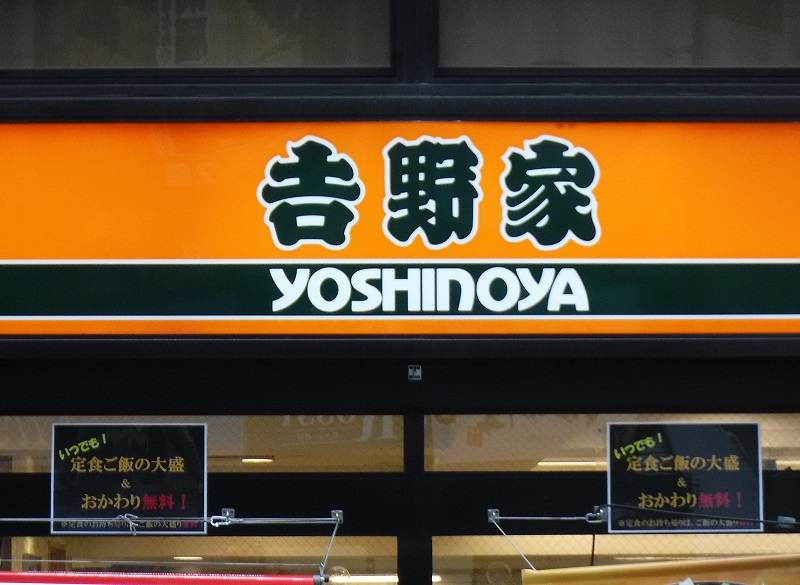
Yoshinoya store
11:49 JST, June 15, 2023
TOKYO (Jiji Press) — Japanese restaurant operators and food makers have resumed their forays into the U.S. market, following the easing of the COVID-19 pandemic.
In a bid to boost earnings, Japanese companies are more actively opening new stores and engaging in business negotiations in the United States.
Yoshinoya Holdings Co., which owns a gyudon beef-on-rice restaurant chain, plans to open two new outlets and renovate 15 in the United States this year. Despite surging materials and labor costs, it is “easy to pass on the costs to prices in the United States,” a public relations official of the company said.
Conveyor-belt sushi restaurant chain Kura Sushi Inc. is planning to open nine to 11 new U.S. outlets over the year from last November.
Among food makers, Ajinomoto Co. is seeing strong sales of frozen foods including gyoza dumplings in the North American market, while Toyo Suisan Kaisha Ltd. is enjoying growing sales of instant noodles.
At Kikkoman Corp., a major manufacturer of products including soy sauce, sales revenue in North America in the last fiscal year grew 30% from the preceding year.
Products from Japanese food makers, such as instant noodles and soy sauce, are lining the shelves at a Woodman’s Market supermarket in the suburbs of Chicago.
Japanese Food Expo, a trade show, was held in Los Angeles last September for the first time in two years.
“Buyers are actively searching for new trends,” Takao Kanbara, the Japanese representative of the event host, the California-based Japanese Food Culture Association, said. “There are high hopes for ‘ekiben’ boxed meals and Japanese tea.”
The Kame Restaurant, opened in Los Angeles in the 1880s by Hamanosuke Shigeta, is believed to have been the first Japanese food restaurant in the U.S. mainland, according to the Japan External Trade Organization.
Thanks to a boom in health foods, the number of Japanese restaurants in the United States topped 3,000 in 1992 and stood at 23,064 as of last December.
“Japanese food has become part of the U.S. food culture,” Kanbara said.
While the Japanese government aims to boost exports of Japanese food products and agricultural, forestry and fisheries goods to ¥5 trillion in 2030, Kanbara stressed the importance of public-private cooperation to help small Japanese food-related businesses enter the U.S. market.
Top Articles in Business
-

Prudential Life Insurance Plans to Fully Compensate for Damages Caused by Fraudulent Actions Without Waiting for Third-Party Committee Review
-

Narita Airport, Startup in Japan Demonstrate Machine to Compress Clothes for Tourists to Prevent People from Abandoning Suitcases
-

Japan, U.S. Name 3 Inaugural Investment Projects; Reached Agreement After Considerable Difficulty
-

Toyota Motor Group Firm to Sell Clean Energy Greenhouses for Strawberries
-

SoftBank Launches AI Service for Call Centers That Converts Harsh Customer Voices into Softer Voices
JN ACCESS RANKING
-

Japan PM Takaichi’s Cabinet Resigns en Masse
-

Japan Institute to Use Domestic Commercial Optical Lattice Clock to Set Japan Standard Time
-

Israeli Ambassador to Japan Speaks about Japan’s Role in the Reconstruction of Gaza
-

Man Infected with Measles Reportedly Dined at Restaurant in Tokyo Station
-

Videos Plagiarized, Reposted with False Subtitles Claiming ‘Ryukyu Belongs to China’; Anti-China False Information Also Posted in Japan






















